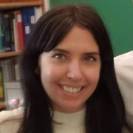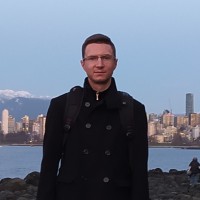“ Chris and his colleagues were professional, fun, and very informative. My students thoroughly enjoyed their visit! ”

For a long time, I had no idea what I wanted to do or be when I grew up. As an Indigenous youth, finding your place in the modern world can be one of the hardest things. Perhaps some of my childhood dreams were to be a popstar, chef, or marine biologist… I think my issue wasn’t so much that I wasn’t passionate about something but rather that I was passionate about so many things! Reading and writing were two things I felt, and continue to feel grounded by. It quickly became apparent in high school that science wasn’t my expertise and that I didn’t have the outgoing personality to do anything singing or acting related.
A cooperative education placement I attended in grade ten at Nishnawbe-Aski Legal Services orporation quickly changed my perspective, passions, and pursuits for life. This placement brought me to a full realization of the ongoing and never-ending injustices Indigenous peoples face in so-called Canada. After working closely with a Gladue Worker for several months, I knew that I wanted to continue on with my education learning the historical struggles, impacts, and effects that colonialism has brought about in and around Turtle Island and of course how intertwined all of these issues are within current politics.
As an Indigenous individual you are quick to find out your identity is political from the moment you are born. I personally did not grow up within my First Nation community but I am strengthening kinship relations, traditional ecological knowledge, and my connection to the land, as well as creator everyday. I am now in my third year of my bachelor of arts degree, majoring in First Nations and Indigenous Studies (FNIS) while also minoring in Political Science at The University of British Columbia. I have long term dream goals to continue onto graduate school at the University of Victoria Faculty of Law, obtain a Juris Doctor (JD) and a Juris Indigenarum Doctor (JID), and then become an established Anishinaabe lawyer within British Columbia and Ontario. One of my personal goals also includes returning to my First Nation community and giving back in any way possible. It often goes unspoken of how Indigenous students feel this immense need or want to aid their traditional communities. It is seen as an obligation or ode to the strength our ancestors as we navigate our way through modern institutions that were not built for us.

These goals I have set for myself are driven by the passion I have for wanting to aid communities in relation to land or treaty issues, self-determination, representation, advocacy, Indigenous rights, and decolonizing political structures within modern Canada. I know that I am not the only one pursuing such big dreams in relation to the push for Indigenous nations receiving the justice, support, and respect that is long overdue. Respect for of our way of life, culture, knowledge, and governance structures. Similar UBC alumni and peers have shared their pursuits with myself or over goal-oriented media initiatives.
For example, Kyla Sedaya LeSage who is a graduate of UBC class 2019 with a degree in Political Science and First Nations Indigenous studies. She is Vuntut Gwitchin from Old Crow, Yukon and Anishinaabe from Garden River, Ontario but grew up on the traditional territory of the Yellowknives Dene First Nations in Yellowknife NT.
During my degree I was given the opportunity to attend a land-based semester at Dechinta Centre for Research and Learning where I received credits for my FNIS degree. This program is what started my journey and work in land-based education in the North. I am now a full-time employee at Dechinta as the Land Based Academic and Regional Outreach Coordinator. In my position, I provide support for students, professors, staff, and elders during our time on the land for Post Secondary semesters with various land-based activities such as harvesting, hide tanning, harvesting medicine, cutting fish as well as supporting them academically with assignments on Self-Determination, Resurgence, Storytelling, Language and Governance. My passion is to support Land Based knowledge within academia and support Indigenous communities that are interested in running land-based education programming. This passion stems from the opportunities that I had as an undergrad in my FNIS program which I am eternally grateful for.

All this being said, there are all these reasons and more to pursue a degree in First Nations and Indigenous Studies. This area of study is needed for individuals to have awareness of and also to be conscious of the unique opportunities available. The research within this faculty is evolving and many communities need as much support as they can receive, whether that be through education, youth work, counselling services, environmental consultation, journalism, art, dance, film, storytelling, cultural tourism, media, resource management, Indigenous affairs, social work, Gladue work, restorative justice, public policy, language revitalization, land-based learning, graduate school, law, etc.
Within the Critical Institute for Indigenous Studies programs at UBC there are so many exciting learning opportunities and exceptional experiences available through research, travel, community, co-op, internships, leadership positions, and support. The diverse career path possibilities are endless which make for an exciting, as well as critical degree. The freedom you have, accompanied by the knowledge gained is very much worth it. These decolonial perspectives and critical theories taught within the curriculum need to be more widely represented and well known within Canada on Indigenous land. As the pursuit for environmental degrees are on the rise, it is important to note that Indigenous led initiatives and ideologies are one of the major actions in fighting climate change and protecting the land.
FNIS allows students to gain the ability to think critically and work collaboratively with intersecting ideologies, industries, or overlapping research fields. This exceptional program equips alumni with the ability to identify frameworks in colonial environments and examine how Indigenous ideologies and existence has been intentionally removed while simultaneously providing the tools to how to integrate this into new frameworks or infrastructures

As much as undergraduate degrees in the arts are deemed of less valuable than say science or technological degrees, I think it is still very crucial for a diversity of individuals to become educated within the political realm as it shapes so much of our everyday lives. There isn’t enough discourse surrounding why it is critical for students to pursue what they are passionate about, not simply gaining a career or steady job. Of course, making a livable income is important- but so is the balance of creating meaningful connections, community, research, and change within an unjust society.



